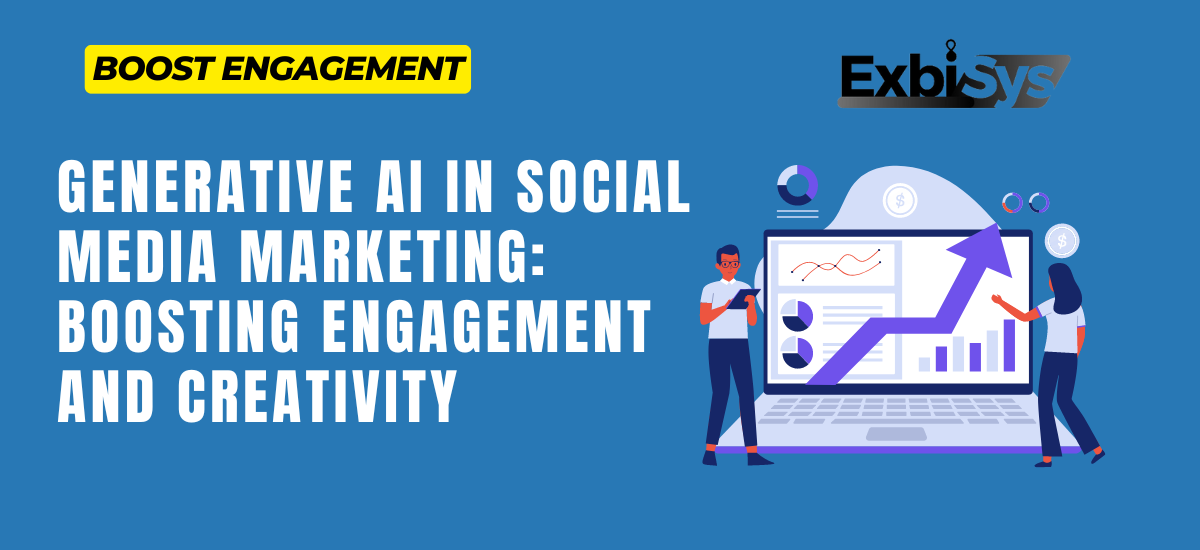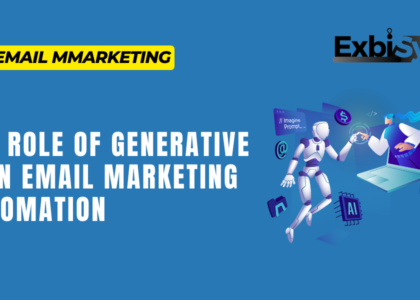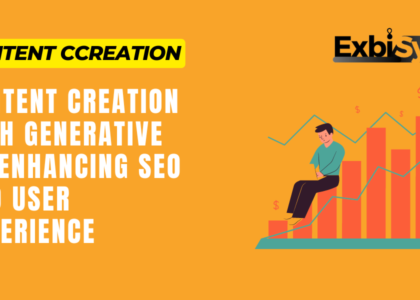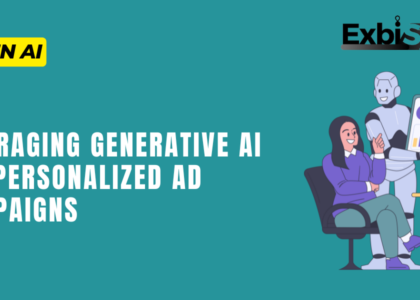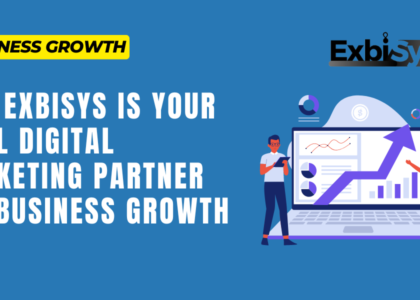Social media marketing has become a pivotal part of any successful digital marketing strategy, with brands vying for attention in an increasingly competitive space. In this landscape, Generative AI is emerging as a game-changer, providing marketers with innovative ways to create engaging content, drive interaction, and scale creative efforts like never before.
In this article, we’ll explore how Generative AI is transforming social media marketing by enhancing engagement, boosting creativity, and automating processes.
1. What is Generative AI in Social Media Marketing?
Generative AI refers to artificial intelligence systems that can generate human-like content, such as text, images, audio, and video, using algorithms and machine learning models. In the context of social media marketing, this technology is leveraged to create posts, design visuals, write captions, and even suggest hashtags, allowing marketers to automate and scale their content creation efforts while keeping it personalized and creative.
2. Boosting Creativity with Generative AI
One of the key advantages of using Generative AI in social media marketing is its ability to boost creativity. Let’s explore some specific ways AI can enhance creativity:
A. Automated Visual Content Creation
Visual content plays a crucial role in social media engagement. Generative AI tools can design eye-catching images, infographics, and even short-form videos by analyzing existing trends and user preferences. Marketers can input certain parameters—such as brand colors, style preferences, and target audience—and the AI will generate unique visuals that resonate with the brand’s identity.
For instance, tools like DALL·E and Canva’s AI features allow businesses to generate custom graphics in minutes. This enables brands to create more frequent and high-quality visuals without the need for a large design team, ensuring consistent content output.
B. AI-Powered Video Creation
Video has become the most engaging form of content on social media platforms like TikTok, Instagram, and YouTube. Generative AI can create short videos with automated transitions, effects, and soundtracks based on the marketer’s objectives. For example, AI tools can stitch together product images, user reviews, and music to create promotional videos or highlight real customer stories, increasing social proof.
This approach is especially useful for brands that want to quickly adapt to trending challenges or memes, as AI can speed up the creative process and ensure that videos are shared while the trend is still hot.
C. Dynamic Content Generation
Generative AI can create multiple versions of the same post, each tailored to different audience segments. This dynamic content creation allows marketers to deliver personalized messaging at scale, which is crucial for building stronger connections with audiences. For instance, AI can generate different taglines or captions depending on the audience’s location, demographics, or interests, ensuring that each post speaks directly to its intended audience.
3. Enhancing Engagement with Generative AI
Engagement is the lifeblood of social media marketing, and Generative AI provides several ways to boost interaction and engagement rates across platforms:
A. Personalized Social Media Posts
Personalization is key to improving engagement, and AI excels at generating personalized content. Generative AI can analyze user data, such as browsing habits, likes, shares, and past interactions, to craft custom posts that are more likely to resonate with specific audiences. This includes personalized product recommendations, tailored offers, and interactive quizzes or polls that align with users’ preferences.
For example, Netflix uses AI to create personalized recommendations for its users based on their watch history. Brands can apply similar strategies to personalize their social media posts, enhancing engagement through relevance.
B. AI-Generated Captions and Hashtags
Crafting the perfect caption and choosing the right hashtags can significantly influence a post’s performance. AI tools can generate creative, contextually appropriate captions that align with the brand’s tone, while also suggesting trending hashtags to increase post visibility.
AI-driven hashtag suggestions are particularly useful for improving organic reach. By analyzing what’s trending in real-time, AI tools can recommend hashtags that will give the post maximum exposure to the target audience, without the need for extensive manual research.
C. AI-Powered Chatbots for Social Media
Generative AI can be used to power chatbots that engage with followers on platforms like Facebook, Instagram, and Twitter. These AI chatbots can answer customer questions, provide product recommendations, and initiate conversations, creating interactive and engaging experiences for users.
For example, Sephora’s chatbot on Facebook Messenger helps users find the perfect beauty products based on their preferences. This not only enhances the customer experience but also keeps users engaged on the platform, which increases the likelihood of conversions.
D. Content Scheduling and Optimization
AI tools can determine the optimal times to post on social media by analyzing user activity and engagement patterns. This helps ensure that content reaches the audience when they are most active, maximizing engagement rates. Additionally, AI can suggest the best type of content to post (e.g., images, videos, stories) depending on what is performing well with specific audience segments.
4. Automating Social Media Campaigns with Generative AI
A. Automated Content Calendar Creation
Generative AI tools can automate the creation of content calendars by analyzing a brand’s social media history, upcoming events, and trends in the industry. This automation allows marketers to plan months of content in advance, ensuring consistency and reducing the stress of day-to-day content creation.
For example, AI can suggest specific content to post on certain dates, like promoting a new product on a release date or highlighting a relevant holiday. This ensures brands stay top-of-mind without overwhelming their teams with manual planning.
B. Campaign Performance Monitoring and Optimization
AI can automatically track the performance of social media campaigns and provide insights for optimization. By analyzing metrics like engagement rates, click-through rates, and conversions, AI tools can recommend adjustments to improve campaign performance in real time. This includes suggesting changes to creative assets, adjusting the timing of posts, or refining targeting based on performance data.
C. AI-Driven Influencer Marketing
Influencer marketing is another area where Generative AI can make a significant impact. AI-powered platforms can help brands identify the right influencers by analyzing engagement metrics, audience demographics, and content alignment. Once the influencers are selected, AI can assist in creating personalized outreach messages, as well as monitoring the performance of influencer-driven campaigns.
This helps streamline influencer marketing efforts and ensures that brands partner with influencers who can genuinely connect with their audience and boost engagement.
5. Real-World Use Cases of Generative AI in Social Media Marketing
A. Coca-Cola: AI-Generated Campaigns
Coca-Cola recently utilized Generative AI to create a series of engaging social media posts and campaigns that align with the brand’s playful tone. Using AI tools, the brand was able to produce dynamic visuals and captions that resonated with its target audience, boosting engagement rates.
B. L’Oréal: AI-Powered Product Recommendations
L’Oréal uses AI to enhance its social media marketing efforts, particularly with personalized beauty product recommendations. The AI system analyzes user preferences and recommends products in social media posts, creating a more personalized experience and increasing the likelihood of purchase.
C. Grammarly: Tailored Social Media Messaging
Grammarly, a writing assistant tool, uses AI to automatically generate personalized social media posts based on user interactions with its platform. This helps the company engage with its audience in a more meaningful way, offering tips, advice, and relevant content that aligns with user needs.
6. Challenges and Ethical Considerations
A. Authenticity Concerns
While Generative AI can produce impressive results, there is a risk of over-automation, where content may start to feel robotic or lose its human touch. Marketers should ensure that AI-generated content still aligns with the brand’s voice and values, maintaining authenticity and emotional resonance with the audience.
B. Data Privacy Issues
Personalization in AI-driven social media marketing often relies on user data, raising privacy concerns. It’s essential for brands to comply with data protection regulations like GDPR and CCPA while using AI to collect and process user information.
C. Quality Control
Despite the advanced capabilities of Generative AI, there can be occasional errors or misinterpretations in the content it generates. Regular quality control and human oversight are necessary to ensure the content is error-free, relevant, and on-brand.
Conclusion
Generative AI is revolutionizing social media marketing by enhancing creativity, improving engagement, and automating time-consuming processes. From dynamic content generation and personalized social media posts to AI-powered visual design and real-time performance optimization, this technology is empowering marketers to create more impactful, engaging campaigns at scale.
By incorporating Generative AI into their social media strategies, brands can stay ahead of the competition, engage with their audience more effectively, and unleash new levels of creativity. However, maintaining a balance between automation and authenticity is crucial to ensure that AI-driven efforts remain genuine and resonate deeply with the target audience.

